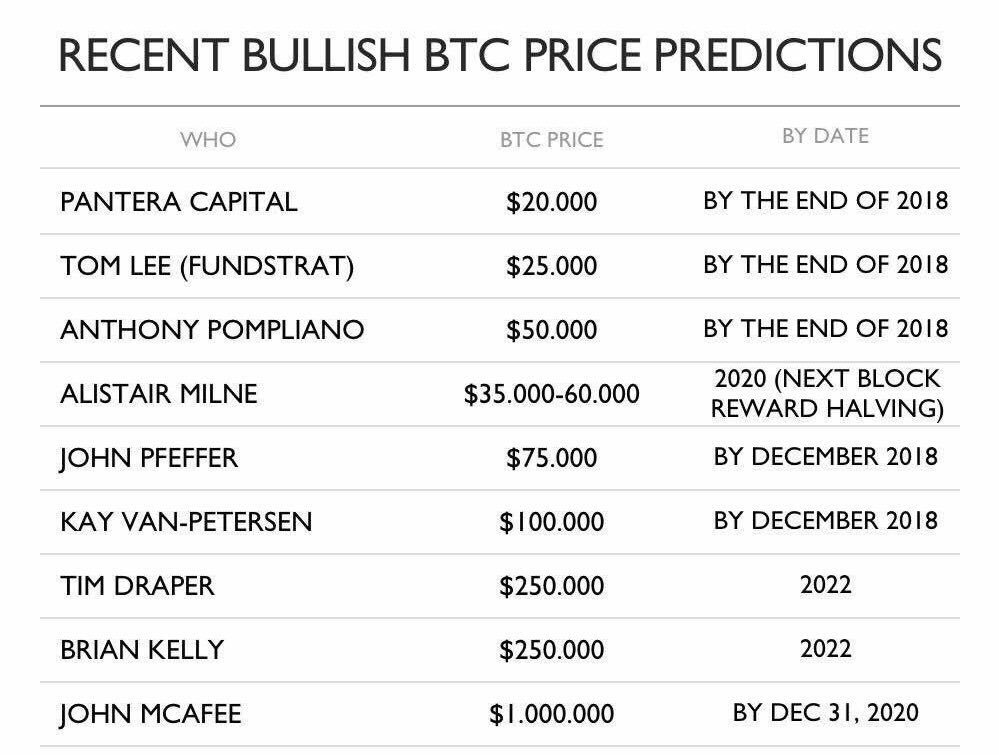A few days ago, Bloomberg published an article in which they criticized and ridiculed the bitcoin price predictions and other markets for 2019, also in view of what happened in 2018.
The analysis starts from the assumption that the experts give their own predictions to please their customers, just as it happens with fortune-tellers.
The author, Barry Ritholtz, does not consider only bitcoin, but the overall problem of predictions in the financial field, highlighting how there is a philosophical element that makes forecasts uncertain. This uncertainty is then exploited to guide and distort the behaviour of investors.
Experts are often paid to make forecasts, but even having perfect data records, they’re not able to make perfect forecasts.
These are the forecasts made so far for BTC:

Kay Van-Petersen, who predicted 100,000 dollars, is not a stranger, but an analyst at Saxo Bank.
The underlying issue is that the markets are too random.
It is the three-body problem: knowing the mass and speed of three bodies in space, each influencing the other two, is it possible to predict the relative position?
The answer was discovered by Henri Poincaré in 1887 and it is no, except for some very particular cases, because the three-body system is non-repetitive.
Historical data on movements cannot predict future positions and there is no algorithm capable of doing so.
Therefore, we are faced with a problem of a philosophical nature, rather than a technical one.
People, even the most prepared ones, do not like to admit that they are not able to control events and that chance has such an important role in life. The problem, in reality, is not to make predictions, but to remain attached to them even when they turn out to be wrong.
However, the problem is not only related to Bitcoin. In the Bloomberg article, Ritholtz expands the valuation to other areas where predictions were wrong: from gold, which some predicted at $5,000 per ounce, when it is now just over 1200, to stock markets, which have proved highly unpredictable.
Forecasters have not been more precise than medieval fortune tellers, however experienced they may have been.
Ritholtz was very realistic, maybe too optimistic, in his predictions, because he did not consider the predictive presumption given to new algorithmic trading, based on purely indicative statistical data and not intended to repeat itself.
Let’s take, for example, BTC’s volatility, an index used in technical analysis:
 Usually, a low volatility is an index of stability or growth, however, as seen with BTC before the last price drops, it is not always the case.
Usually, a low volatility is an index of stability or growth, however, as seen with BTC before the last price drops, it is not always the case.
In reality, its low value was only an indicator of algorithms that all moved in the same banal way.
AI (Artificial Intelligence) can be either very intelligent or stupid, the line is very thin, while the human mind is able to show more variability.
In this case, random events cause unexpected or inconsistent movements in the markets. Paradoxically, a human market would react less impulsively and much more gradually. When the most liquid market, that of BTC, is not predictable, so much less so are those of other cryptocurrencies which are even less liquid, such as ETH or XRP.



